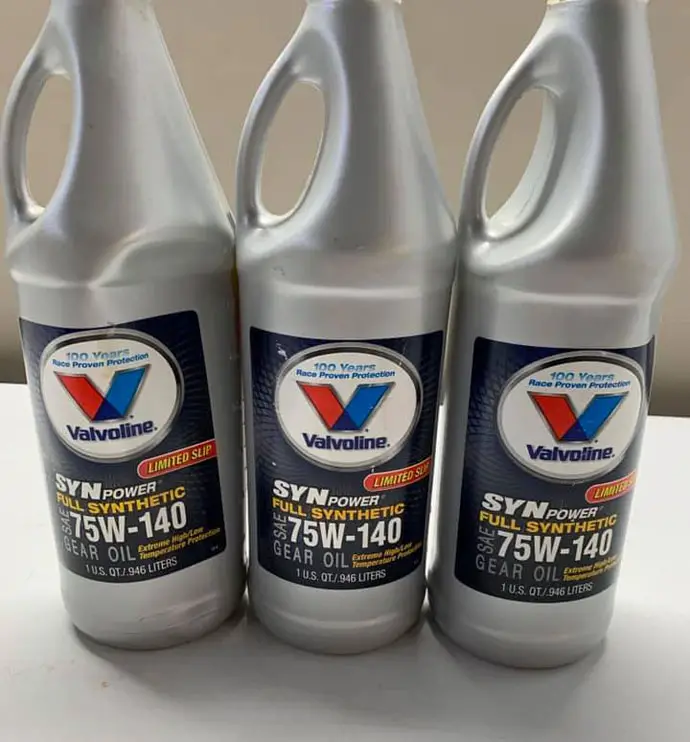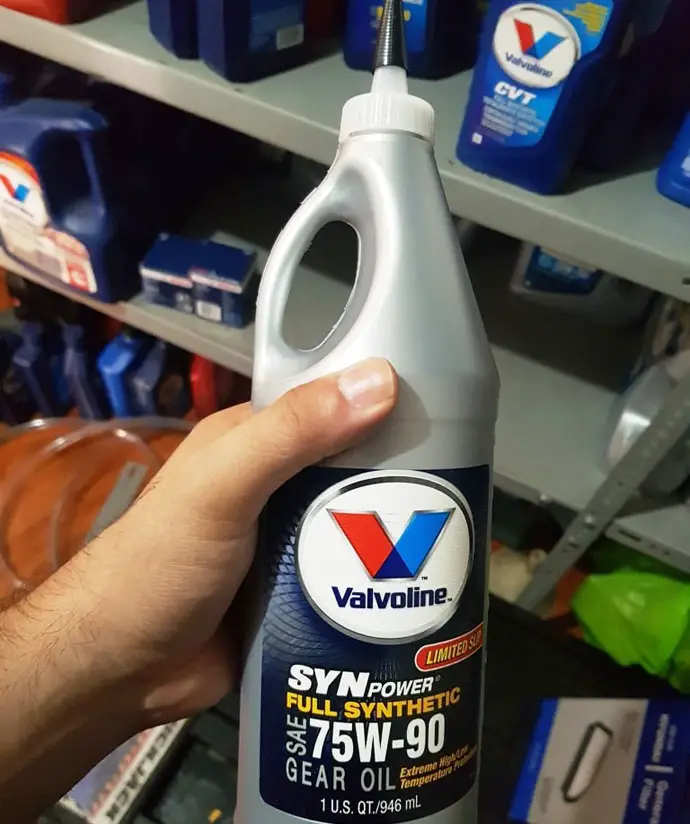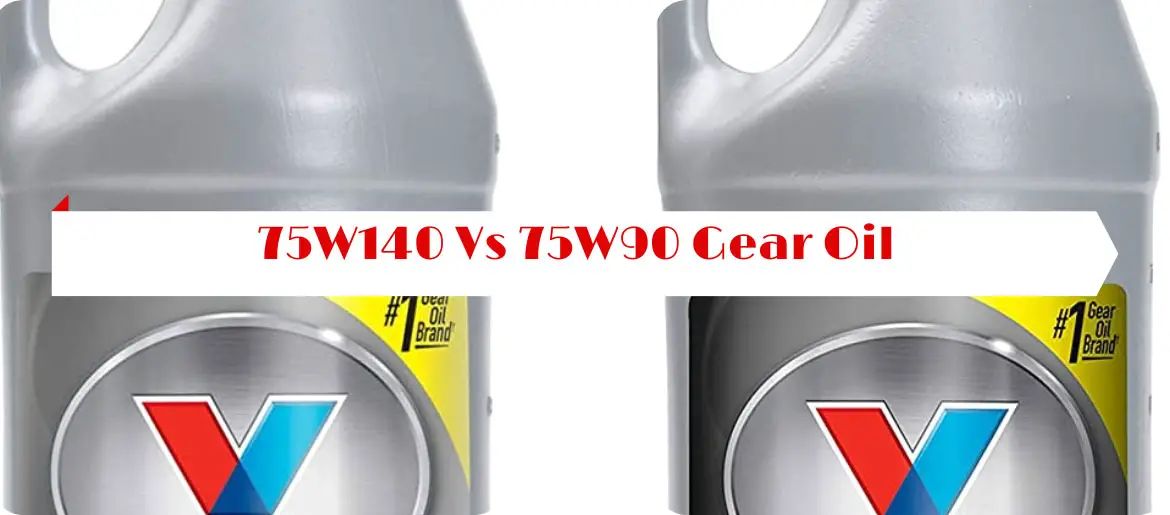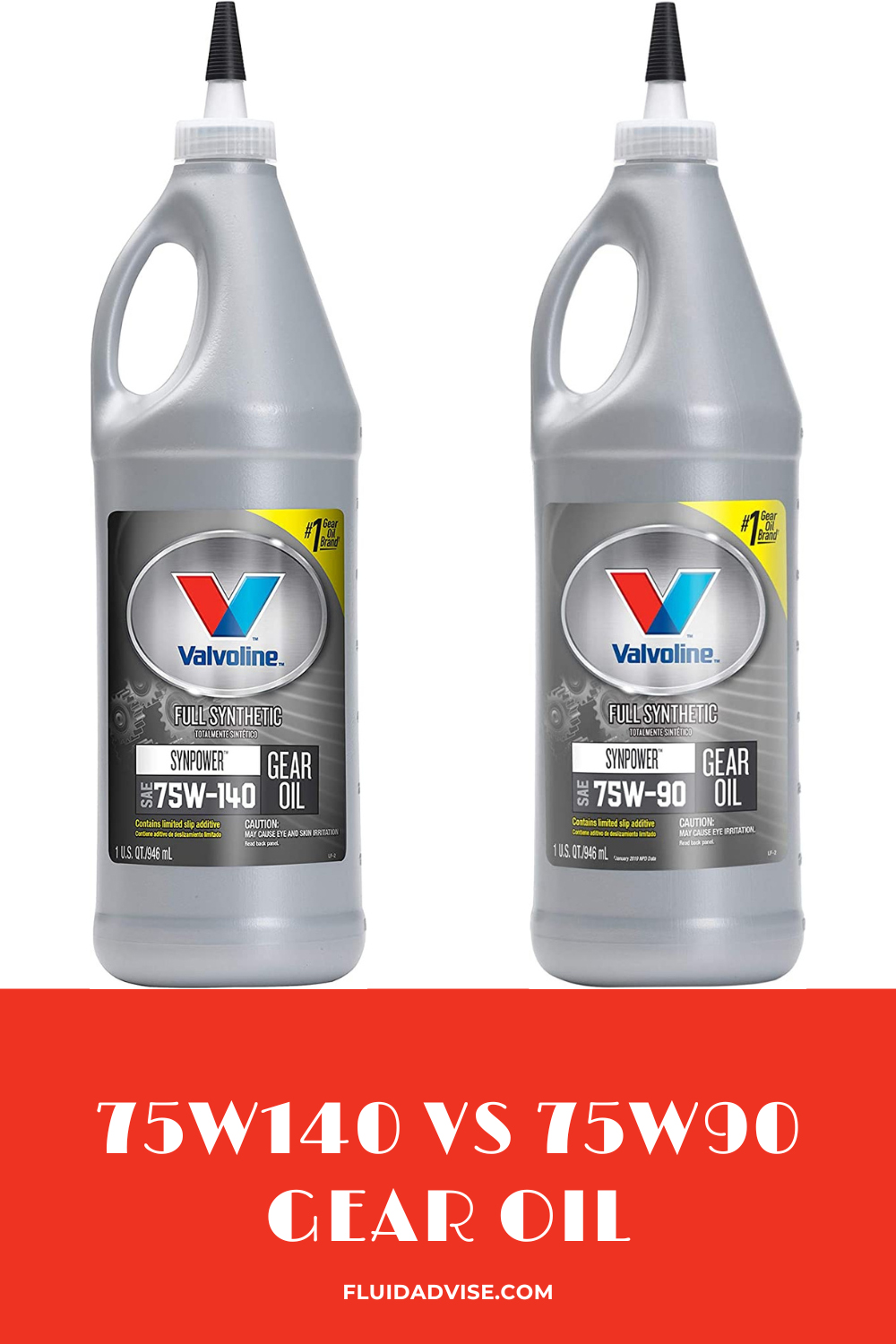75W140 Vs 75W90 Gear Oil | In-depth Comparison
Reviewed By: Joses Peter
There are a lot of different gear oils on the market, and it can be difficult to decide which one is right for your vehicle. In this blog post, I’ll compare 75W140 Vs 75W90 gear oils to help you make the best decision for your needs. Both of these oils have their pros and cons, so read on to learn more!
What Is 75W140 Motor Oil?
75W140 motor oil is a type of gear oil that is designed for use in vehicles with manual transmissions. This oil is thicker than other types of gear oils, which means that it can provide better protection for your gears. 75W140 motor oil can also be used in differentials and transfer cases.

The Pros and Cons of 75W140 Motor Oil
The main advantage of 75W140 motor oil is that it can provide better protection for your gears. This oil is also less likely to leak than other types of gear oils. However, 75W140 motor oil can cause your vehicle to use more fuel.
Check 0W30 Vs 5W30
What Is 75W90 Motor Oil?
75W90 motor oil is a type of gear oil that is designed for use in vehicles with manual transmissions. This oil is thinner than 75W140 motor oil, which means that it can provide better fuel economy. 75W90 motor oil can also be used in differentials and transfer cases.

The Pros and Cons of 75W90 Motor Oil
The main advantage of 75W90 motor oil is that it can provide better fuel economy. This oil is also less likely to leak than 75W140 motor oil. However, 75W90 motor oil can cause your gears to wear out more quickly.
Also check 75W90 Vs 80W90 Gear Oil
What Is the Difference Between 75W90 and 75W140?
The main difference between 75W90 and 75W140 is that 75W140 motor oil is thicker than 75W90 motor oil. This means that 75W140 can provide better protection for your gears, but it can also cause your vehicle to use more fuel.
So, which type of gear oil should you use? The answer depends on your needs. If you are looking for better protection for your gears, 75W140 motor oil is a good choice. However, if you are looking for better fuel economy, 75W90 motor oil is a better choice. Whichever type of oil you choose, make sure to follow the manufacturer’s recommendations for your specific vehicle.

Similarities Between 75W90 and 75W140
There are several similarities between the two types of oil, the most notable being that they are both used in heavy-duty applications.
Both oils have a high viscosity rating, meaning they are thicker than most other oils on the market. This is important for applications that require a lot of power, such as towing or hauling. Both oils also have a high flash point, meaning they can withstand higher temperatures before breaking down.
Finally, both oils have a high pour point, meaning they will remain fluid in extremely cold temperatures.
75W140 Vs 75W90: Fuel Economy
The debate between choosing a 75W140 gear oil or a 75W90 oil for better fuel economy has been around for some time. The truth is, there is no clear winner when it comes to fuel economy. Both oils have their pros and cons and it really depends on your specific vehicle and driving habits as to which oil will provide better fuel economy.
If you are looking to save money on fuel, your best bet is to choose the 75W140 gear oil. This oil is designed to provide better fuel economy thanks to its lower viscosity. The 75W90 oil is also a good choice for fuel economy, but it does have a higher viscosity which can lead to increased fuel consumption.
75W140 Vs 75W90: Protection
If you’re looking for the best protection for your vehicle, you may be wondering if you should choose 75W140 or 75W90 gear oil. Both types of oil offer excellent protection, but there are some key differences that you should be aware of.
75W140 gear oil is thicker than 75W90 oil, which means it can better withstand high temperatures and heavy loads. It’s also designed to provide superior protection against wear and tear.
75W140 Vs 75W90: Functional Temperature
There are a few key differences between 75W140 and 75W90 gear oil. The first is the weight, or viscosity, of the oil. A 75W140 oil is much thicker than a 75W90 oil, and this is due to the higher viscosity index.
The second difference is the pour point or the temperature at which the oil will solidify. A 75W140 oil has a lower pour point than a 75W90 oil, meaning that it can be used in a wider range of temperatures.
Lastly, the flash point, or the temperature at which the oil will catch fire, is also lower for 75W140 oil. This means that it is more likely to catch fire if it is exposed to a spark or other ignition source.
75W140 Vs 75W90: Viscosity Index
Viscosity is a fluid’s resistance to flow. The higher the viscosity, the thicker the fluid, and the slower it flows. The lower the viscosity, the thinner the fluid and the faster it flows. The viscosity of a fluid is affected by temperature. As the temperature increases, the fluid becomes less viscous and flows more easily.
The viscosity index (VI) is a measure of a fluid’s resistance to changes in viscosity with temperature. The higher the VI, the more stable the viscosity of the fluid is over a range of temperatures.
There are two common grades of gear oil: 75W90 and 75W140. These numbers refer to the oil’s viscosity at low and high temperatures, respectively. The “W” stands for winter, indicating that the oil has a low viscosity at cold temperatures.
The 75W90 oil has a viscosity of 75 at low temperatures and 90 at high temperatures. The 75W140 oil has a viscosity of 75 at low temperatures and 140 at high temperatures.
So, which oil is better? It depends on your application. If you live in a cold climate and do a lot of driving in cold weather, the 75W90 oil is a better choice. The 75W140 oil is a better choice for hot climates or if you do a lot of driving in hot weather.
75W140 Vs 75W90: Pricing
75W140 and 75W90 gear oils are both produced by Royal Purple. The two oils have different properties, with 75W140 being a heavier, more viscous oil than 75W90. As a result, 75W140 is more expensive than 75W90.
Conclusion
The bottom line is that both 75W140 and 75W90 gear oils have their pros and cons. The type of oil you choose should be based on your specific needs. If you are looking for better protection for your gears, 75W140 is the way to go. However, if you are looking to save on fuel, 75W90 is the better choice. Whichever oil you choose, make sure to follow the manufacturer’s recommendations for your specific vehicle.
People Also Ask
Can you mix 75W140 and 75W90?
If you are unsure about which oil to use in your car, it is always best to consult your car’s owner’s manual. However, if you are mixing different types of oil, it is generally safe to mix 75W140 with 75W90. These oils have similar properties and will not cause any damage to your car.
Can I use 75W90 instead of 75W140?
75W90 and 75W140 are both gear oils, but they are not interchangeable. 75W90 is a lower viscosity oil, meaning it is thinner and flows more easily than 75W140. 75W140 is a higher viscosity oil, meaning it is thicker and does not flow as easily. You should use the oil that is specified for your vehicle.
Is 75W90 Suitable for Diesel Engines?
Diesel engines typically require oil with a higher viscosity than gasoline engines. 75W90 is a high-viscosity oil that can be used in both gasoline and diesel engines. However, it is best suited for use in diesel engines.
What Temperature is Suitable for 75W140?
The temperature range for 75W140 is -30°C to +70°C.
Is Thicker Gear Oil Better?
Thicker gear oil is not necessarily better. In some cases, it can actually be detrimental to the gears. Thicker oil can make it more difficult for the gears to mesh properly, which can lead to increased wear and tear.
Is Synthetic Gear Oil Better than Regular Gear Oil?
Synthetic gear oil is often touted as being better than regular gear oil, but is it really? Let’s take a look at the pros and cons of each type of oil to see which one is right for your vehicle.
Regular gear oil is made from petroleum, while synthetic gear oil is made from synthetic base oils. Synthetic base oils are man-made and designed to be more stable than regular base oils. This means that synthetic gear oil is less likely to break down under high temperatures and high-stress situations.
Synthetic gear oil also has additives that can improve its performance. These additives can help to protect against wear, corrosion, and foaming.
While synthetic gear oil does have some advantages over regular gear oil, it is important to remember that it is not a magic bullet. Synthetic gear oil still needs to be changed regularly, just like regular gear oil.
So, which type of oil is right for you? If you are looking for the best possible protection for your gear, synthetic gear oil is the way to go. However, if you are on a budget, regular gear oil will still provide good protection and can be a cost-effective option.




